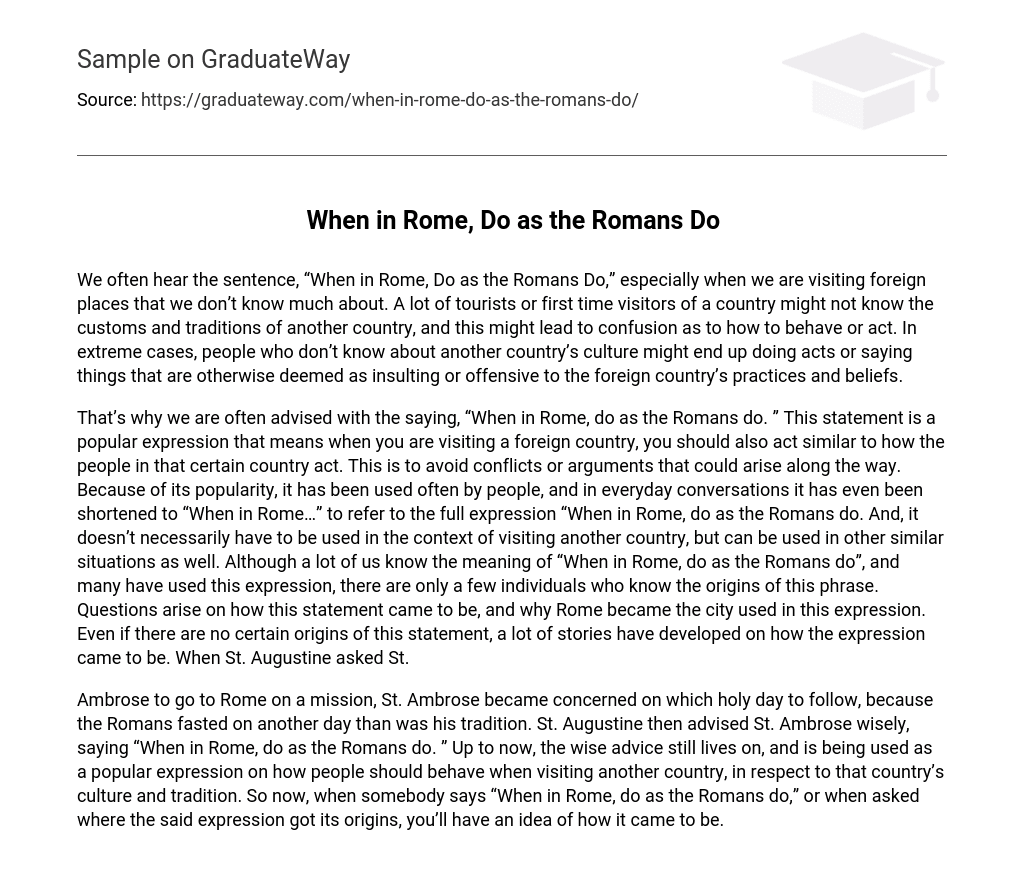We often hear the sentence, “When in Rome, Do as the Romans Do,” especially when we are visiting foreign places that we don’t know much about. A lot of tourists or first time visitors of a country might not know the customs and traditions of another country, and this might lead to confusion as to how to behave or act. In extreme cases, people who don’t know about another country’s culture might end up doing acts or saying things that are otherwise deemed as insulting or offensive to the foreign country’s practices and beliefs.
That’s why we are often advised with the saying, “When in Rome, do as the Romans do. ” This statement is a popular expression that means when you are visiting a foreign country, you should also act similar to how the people in that certain country act. This is to avoid conflicts or arguments that could arise along the way. Because of its popularity, it has been used often by people, and in everyday conversations it has even been shortened to “When in Rome…” to refer to the full expression “When in Rome, do as the Romans do. And, it doesn’t necessarily have to be used in the context of visiting another country, but can be used in other similar situations as well. Although a lot of us know the meaning of “When in Rome, do as the Romans do”, and many have used this expression, there are only a few individuals who know the origins of this phrase. Questions arise on how this statement came to be, and why Rome became the city used in this expression. Even if there are no certain origins of this statement, a lot of stories have developed on how the expression came to be. When St. Augustine asked St.
Ambrose to go to Rome on a mission, St. Ambrose became concerned on which holy day to follow, because the Romans fasted on another day than was his tradition. St. Augustine then advised St. Ambrose wisely, saying “When in Rome, do as the Romans do. ” Up to now, the wise advice still lives on, and is being used as a popular expression on how people should behave when visiting another country, in respect to that country’s culture and tradition. So now, when somebody says “When in Rome, do as the Romans do,” or when asked where the said expression got its origins, you’ll have an idea of how it came to be.





